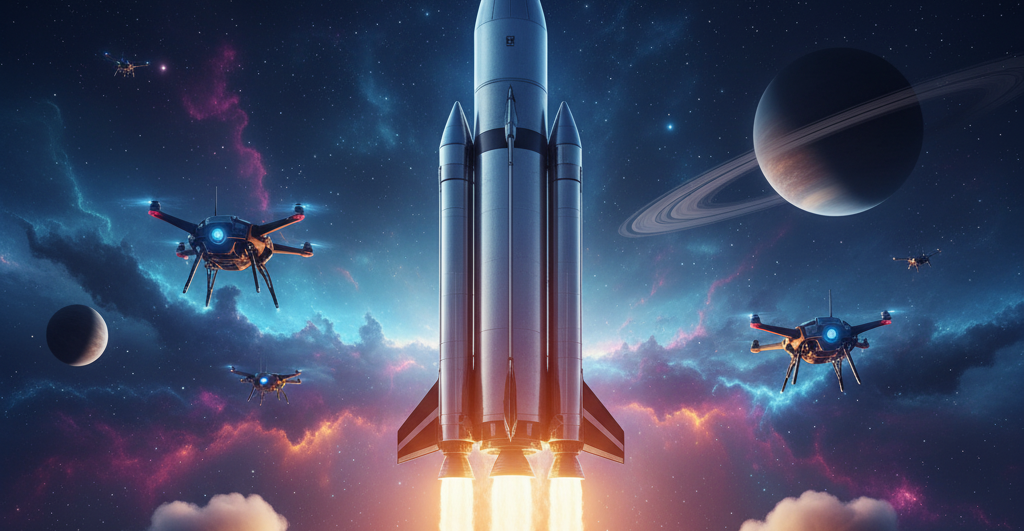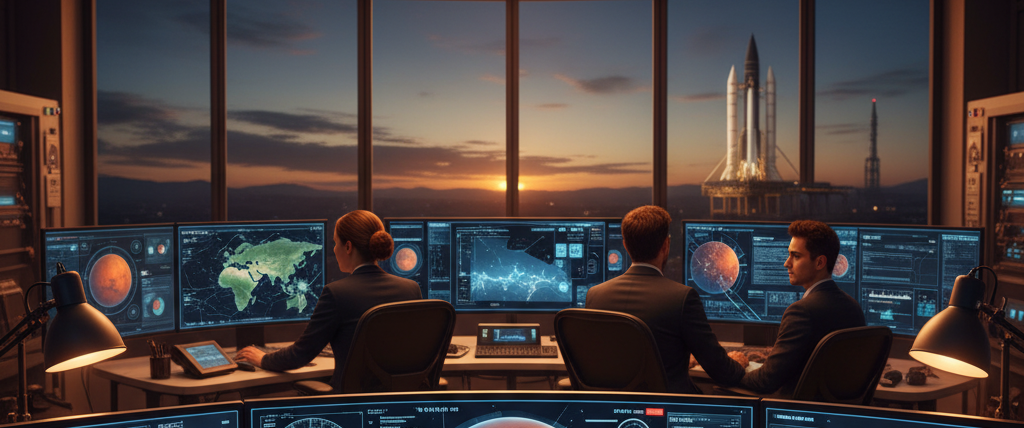Space exploration, a cornerstone of science and technology, pushes the boundaries of human knowledge and ambition by venturing beyond Earth. Fueled by advancements in propulsion, robotics, and AI, the field has evolved from the Apollo missions to reusable rockets and lunar ambitions. By 2025, global space spending exceeds $100 billion annually, per Space Foundation, with private players like SpaceX and Blue Origin driving innovation alongside NASA and ESA. Offering transformative potential for science, industry, and humanity, space exploration faces challenges in cost, safety, and ethics, shaping a bold new era.

The Foundations and Mechanics of Space Exploration
Space exploration took flight in 1957 with Sputnik, evolving through milestones like the 1969 Moon landing. Modern missions rely on advanced technologies: ion propulsion systems, like those on NASA’s DART, increase fuel efficiency by 10x, while AI-powered rovers, such as Perseverance, analyze Martian terrain with 95% accuracy. Reusable rockets, like SpaceX’s Falcon 9, cut launch costs by 30%, per a 2024 McKinsey report, enabling frequent missions. Satellites, numbering over 5,000 in orbit, support communication, climate monitoring, and navigation.
Applications are vast: space-based solar power could meet 10% of global energy needs by 2040, per IEEE, while asteroid mining promises rare minerals like platinum, valued at $1 trillion per asteroid. However, high costs—$1 billion for a single Mars rover—limit scalability, and space debris, with 36,000 tracked objects, poses collision risks.
Opportunities for Scientific and Commercial Breakthroughs
For scientists, space exploration unlocks cosmic mysteries. Telescopes like the James Webb Space Telescope reveal exoplanet atmospheres, aiding the search for life, with 5,000+ exoplanets cataloged by 2025. Mars missions uncover evidence of ancient water, informing habitability studies. In industry, space tourism, led by Blue Origin, generates $1 billion annually, while satellite internet, like Starlink’s 3 million users, bridges digital divides.
Businesses capitalize on space’s potential. Microgravity manufacturing produces purer pharmaceuticals, boosting yields by 20%, per a 2024 Nature study. Space startups attract $10 billion in venture capital yearly, per BryceTech, fostering innovation in propulsion and habitats. Governments invest heavily—NASA’s Artemis program, with a $93 billion budget, aims for lunar bases by 2030—spurring economic and scientific growth.

Challenges and Ethical Considerations
Space exploration faces steep hurdles. Launch failures, like the 2023 Starship explosion, highlight safety risks, with crewed missions costing lives and billions. Radiation exposure in deep space endangers astronauts, requiring shielding advances. Space debris threatens satellites, with a 10% chance of major collisions by 2030, per ESA. High costs exclude smaller nations—80% of space funding comes from the U.S., China, and Europe—widening global divides.
Ethical concerns include planetary protection; contaminating Mars with Earth microbes could ruin astrobiology studies. Space militarization, with nations developing anti-satellite weapons, raises tensions, as seen in China’s 2024 tests. Commercial exploitation, like lunar mining, sparks debates over resource rights, with the Outer Space Treaty’s vague guidelines fueling disputes.
Strategies for Success and Cultural Impact
Researchers can advance by leveraging AI for mission planning, as NASA’s AI cuts rover path calculations by 50%. Collaborations, like the Artemis Accords, unite 40 nations for shared goals. Businesses should prioritize sustainable practices, like debris-mitigation tech, to ensure longevity. Open-access data from missions, via NASA’s portal, democratizes research. Staying informed through outlets like SpaceNews aligns stakeholders with progress.
Culturally, space exploration inspires awe, featured in media like National Geographic and films like Interstellar. AI-driven simulations, modeling exoplanet climates, enhance discovery. For science and tech enthusiasts, engaging with platforms like SpaceX’s livestreams or supporting space education fosters connection to this frontier.
Space exploration ignites humanity’s quest for knowledge. By tackling its challenges with innovation and ethics, researchers and industries can pioneer a future of discovery and opportunity beyond Earth.
